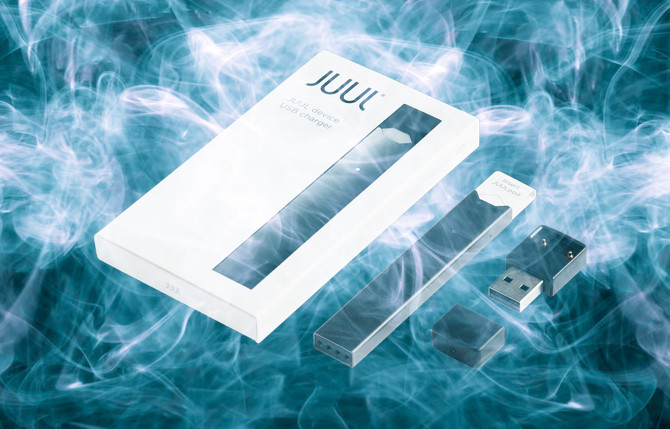
Every time I write about vaping and the extraordinary lengths that the tobacco industry (epitomized by Juul, a sister company to Marlboro) has gone to in order to convince children to vape, I hear from people who tell me that vaping is safe, especially compared to smoking.
1/
1/

This month, I wrote "I Quit," about my own smoking cessation, with some of Juul's dirtiest tricks, including increasing the nicotine in its child-targeted fruit flavors and its fake "mental health seminars" in schools where they promote vaping.
doctorow.medium.com/i-quit-9ae7b60…
2/
doctorow.medium.com/i-quit-9ae7b60…
2/
One Juul trick I wasn't aware of at the time? Faking the research on the safety of vaping.
In a just-published paper for BMJ Tobacco Control, a group of evidence-based medicine specialists document Juul's safety research fraud.
tobaccocontrol.bmj.com/content/early/…
3/
In a just-published paper for BMJ Tobacco Control, a group of evidence-based medicine specialists document Juul's safety research fraud.
tobaccocontrol.bmj.com/content/early/…
3/
The paper is paywalled, but they've also published a pre-press on Oxford's research archive.
The authors document how Juul exhibits classic "reporting bias" in its safety research studies.
ora.ox.ac.uk/objects/uuid:6…
4/
The authors document how Juul exhibits classic "reporting bias" in its safety research studies.
ora.ox.ac.uk/objects/uuid:6…
4/
"Reporting bias" is when you researchers report on studies (or parts of studies) that support their employers' commercial goals (or their own ideological ones), leaving out the results that are inconclusive or harmful to their cause.
5/
5/
Reporting bias was once endemic to pharma research, to the point where HALF of the human subject studies pharma companies started never reported in.
Imagine a study of coin-tosses where you only reported half the results - you could "prove" that coins ALWAYS came up heads.
6/
Imagine a study of coin-tosses where you only reported half the results - you could "prove" that coins ALWAYS came up heads.
6/
One of the most effective fighters against reporting bias is @bengoldacre, whose 2012 book BAD PHARMA documented the practice - and its human cost - in eye-watering detail.
memex.craphound.com/2012/11/06/bad…
7/
memex.craphound.com/2012/11/06/bad…
7/
Goldacre went on to help found the Register of All Trials, where every pharma trial is pre-registered in a public repository, allowing regulators to disqualify drugs whose trials don't report in.
Goldacre is a co-author on the Juul study.
alltrials.net
8/
Goldacre is a co-author on the Juul study.
alltrials.net
8/
The Register of All Trials model has been replicated around the world, including in the US, where the FDA maintains a similar repository. The researchers used this to locate trials registered by Juul Labs and then checked whether and how they'd reported in.
9/
9/
What they found was a classic case of reporting bias. Trials that measured five phenomena might only report back on one or two of them, which supported the safety of vaping (leaving us to assume that the remainder showed vaping to be dangerous).
10/
10/
And, of course, some trials didn't report back at all.
This is deeply unethical.
For one thing, the trial subjects engaged in conduct potentially harmful to their own health in order to further science.
11/
This is deeply unethical.
For one thing, the trial subjects engaged in conduct potentially harmful to their own health in order to further science.
11/
It's bad enough if they were injured in these trials, but if the fact of their injury was suppressed in order to serve Juul's profits, then they were harmed for NOTHING.
12/
12/
The tobacco industry has a long history of bad science, of faking the research on the way its products harm their customers. Juul tells us that its products are safe, but it suppresses significant amounts of its own research.
13/
13/
NOT ONE of the Juul studies the researchers investigated had fully reported in.
Not.
One.
Now, maybe Juul is keeping its research outcomes a secret because it knows we'll be delighted with the results and it doesn't want to spoil the surprise.
But I'm not betting on it.
14/
Not.
One.
Now, maybe Juul is keeping its research outcomes a secret because it knows we'll be delighted with the results and it doesn't want to spoil the surprise.
But I'm not betting on it.
14/
Image:
William Warby (modified)
flickr.com/photos/wwarby/…
CC BY:
creativecommons.org/licenses/by/2.…
eof/
William Warby (modified)
flickr.com/photos/wwarby/…
CC BY:
creativecommons.org/licenses/by/2.…
eof/
ETA - If you'd like an unrolled version of this thread to read or share, here's a link to it on pluralistic.net, my surveillance-free, ad-free, tracker-free blog:
pluralistic.net/2021/06/22/vap…
pluralistic.net/2021/06/22/vap…
• • •
Missing some Tweet in this thread? You can try to
force a refresh






